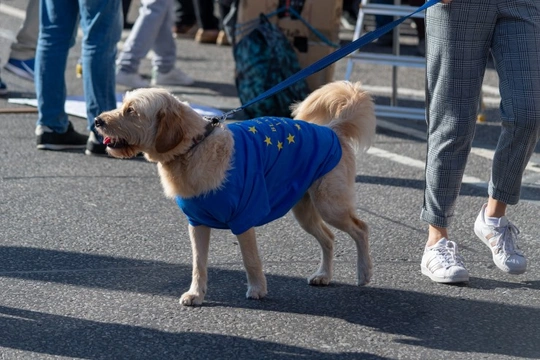
What are the implications of a ‘No Deal Brexit’ for our pets?
The mention of the word Brexit makes the UK population heave a sigh of ‘not again’. For the last two years it has been foremost in the news, mainly due to the different directions that the movement has gone through, and the indecision and inability to reach an agreement.
The phrase ‘no deal’ has been bandied around with ever-increasing momentum, but what does this really mean to pet owners? A ‘no deal’ situation would potentially have far more reaching implications than most of us have been informed of, or even begin to understand.
D-Day is March 29th, 2019 and until that time, current laws will stand on the movement of pets between the UK and Europe. Pet passports will still be valid and any necessary vaccinations such as rabies, will remain, along with microchipping. After this date, what will happen if there is a ‘no deal’ scenario? Currently, dogs, cats and ferrets can move with relative ease, but restrictions will be placed depending on which category the UK finally ends up in. This will affect both human traffic and pets who wish to travel between the UK and the EU.
Currently, little time is needed to sort out arrangements for taking pets abroad, but the implications of the ‘no deal’ will make it much harder. It is essential that the UK become a listed third country, which will make entry requirements less stringent.
What is a ‘listed third country’?
Currently, pets travelling abroad have freedom of movement to every country, but in order to travel easily within the EU in a no deal situation, we will have to ensure that we are listed as having high ranking veterinary care and little or no pet diseases that may be prevalent. This may sound simple enough considering that veterinary care in the UK is second to none, but the EU are hard taskmasters, and this procedure could be tied up in red tape for a long period of time (as has already been witnessed).
The whole procedure of taking pets abroad will take far longer, up to 4 months of burdensome health checks, vaccinations and paperwork. The ability to travel at relatively short notice will no longer exist. Chances of a last-minute trip to France for instance, with family and dog in tow, will become an impossibility. Many people do not have the luxury of planning holiday trips months and months in advance and getting cheap travel for late bookings will not be in the realms of possibility.
What happens if we don’t make the listing?
To be honest, it doesn’t bear thinking about. Currently, you can arrange authorisation to take your pet abroad within a matter of a few weeks, but a ‘no deal’ exit will make this impossible. Potentially, as directed by the UK government, it will take up to four months to get clearance for any pets to travel with you within the EU. This lead time will be essential to make sure your plans, whether for holiday or expatriation, go without any problems.
There will be much more paperwork, and quarantine procedures may well be re-introduced – it is still somewhat hazy. Needless to say, the remaining EU countries are making our exit as difficult as possible.
What will be the new requirements?
Any pet owners wishing to travel with their pets should consider this at least four months in advance, whatever mode of travel including train, coach, car or air. In fact, coach and train/road travel may be suspended for a period, for both human passengers and pets in and out of UK ports.
To date, further requirements will be as follows, but this does not necessarily mean it will be all that is needed.
- Consultation with an ‘Official Veterinarian’ – as yet there is no clarification about vets that will be considered to fulfil this requirement, so your own local vet may not be on the list.
- A four-month lead time will be required.
- Proof will be needed to ensure that pets are ‘rabies free’. A simple vaccination will not suffice. Current implications for this mean that after a vaccination is applied, there must be a 30 day wait, followed by a blood test to prove that the pet is rabies free. After this, a further wait of three months will be required before travel is permitted.
- Your pet will still need a passport and microchip, even with all these other regulations.
This whole procedure can thwart the plans of even the most stoical travellers, with such a large amount of red tape and rigmarole involved.
Other Implications
Have you ever considered where some of the food you feed your pets originates, and even essential drugs for pet health? A considerable amount of pet food is manufactured abroad, as are some of the products for healthcare.
Trade between the UK and the EU is bound to be affected, particularly at sea ports and the government is already making plans to increase the amount of sea cargo traffic from various ports to and from the UK. Will there be a shortage? It is too soon to tell but it is a possibility, depending on how and what you feed your pets. Even though the UK is in plentiful supply of home-produced goods, at the end of the day, we are an island nation that is dependent on easy trade with our European counterparts.
All in all, a ‘no deal’ Brexit could have serious implications on us and our pets.



